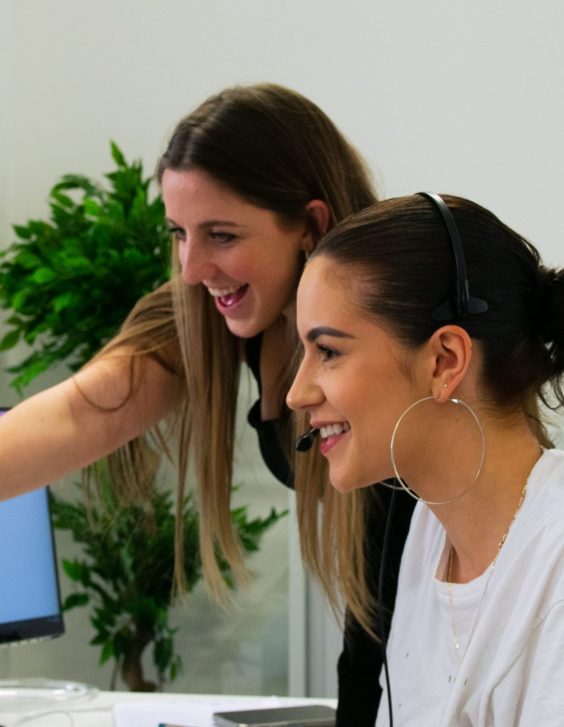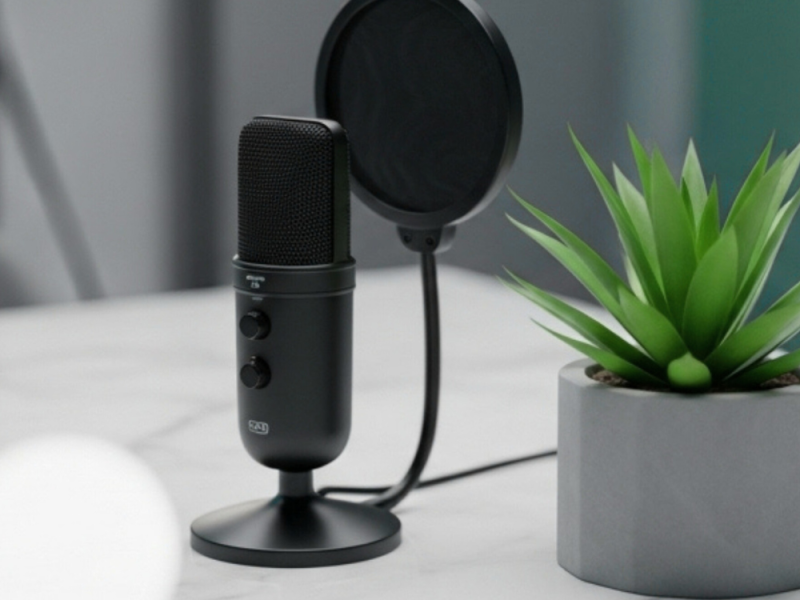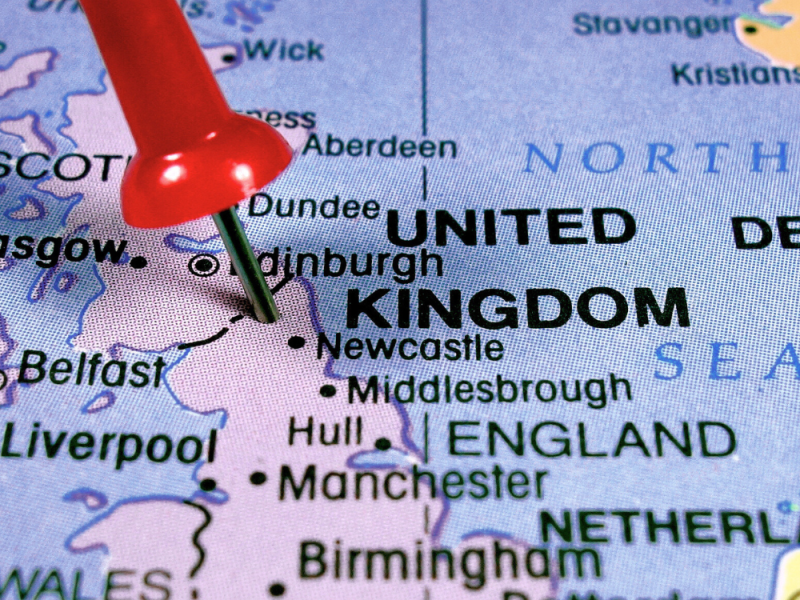Why Are Podcasts Good for Business?
Podcasts are a growing industry, and one that could hugely benefit your company as a marketing tactic, especially if your monetary and time budgets are tight. With a little know-how, you could be one of the 1 million active podcasts that are exposed to a massive 7.1 million active listeners in the UK every week.

In a world of ever-evolving media and marketing – both social and traditional – it can be a challenge for businesses to stay at the forefront of their audiences’ minds. Yet while people’s attentions are divided between multiple mediums, there’s one that has audiences rapt: the humble podcast.
Here we’ve put together a guide to the key ways in which your business could benefit from starting its own podcast. More pointedly, we explain the unique benefits of podcasts as a modern marketing medium – and why passive audio listening may just be the future of digital marketing.
Podcasts don’t require the skills, cost or tools of other mediums.
First of all, podcasting is popular because it is easy. Of course, if you create one that really takes off, you will probably need to invest in professional help or apparatus further down the line; but for just starting out, it can be mastered in very little time.
Anyone can create a podcast, and it is this egalitarian nature that attracts a lot of people to listen to podcasts in the first place. Audiences were bored of over-produced shows that told them what to listen to and what to like. Podcasts have to be actively sought out and chosen, but once you’ve got a listener who likes you, they’ll usually subscribe and listen to everything you put out, a loyalty that is rare across other types of media.
The power of podcasts comes from their sheer accessibility, for both the listener and the creator. For the audience, all that is required is a listening device, such as the apps already installed onto pretty much every available smartphone (in fact, most podcasts are listened to through this medium) and a few clicks before they are set up and ready to listen. For the creator, all you need is a microphone or two, a laptop or other device, and some recording software, many examples of which are available for free.
Podcasts can be consumed passively
The ability to listen passively means that people don’t need to be sat at a computer or in front of a TV, giving up their free time to learn about your company. While at first this may seem like the opposite of what you want (who doesn’t want undivided attention?), this type of listening is actually hugely successful for advertising: 69% of those asked said that podcast ads made them more aware of a product.
By starting your own podcast, you’ll essentially be building ad content that engages people on its own merits, and that people won’t want to skip through – giving you the time and space to get in the ears and minds of the public without distracting them from their day-to-day lives. That seems like a win all round.
Podcasts can help build personality and relationships with audiences
People like the feeling that they are seeing behind the scenes, and podcasts are really good at doing this. As well as a level of engagement that written or pre-recorded video simply doesn’t have, there’s the opportunity to be real – or perceived as real – for your audience. If you keep post-production editing to a minimum, those fluffed lines and silly moments that come from live recordings are the very thing that will humanise you and your business, and endear you to your listeners.
You can push this connection further by making the content more inclusive and interactive. Pose questions to your audience and respond to them on the next show, get them to offer up ideas, run competitions, or create campaigns on social media platforms in connection with the podcast. Anything that gets the listener to feel like they had a hand in the creation of something can be a powerful tool for creating meaningful connections, and in turn, they could become a customer or client, or recommend you to someone who might.
For a more strategic take on this, podcasts also allow you to filter the feedback that you get. On a radio show, for example, phone-ins come in live, and therefore the producers and hosts have no way of knowing or editing what a caller might say. Choosing whether to include an audience member’s input on a podcast allows you to decide what you want to air and what you want to ignore, making it a powerful tool for curation.
Podcasts can work with other types of media
Podcasts are a viable option for those who aren’t open to the idea of video content. No one ever needs to see your face if you don’t want them to, and most audiences won’t demand it. If they’re listening to a podcast, it’s partly because they don’t have the time to watch a video, as it requires stopping what they are doing. With a podcast they can listen while doing other things, whether that’s in the home, office or outside, while driving, commuting, gardening… pretty much anywhere that they have a smart-speaker, computer, or can take their phone or laptop.
That isn’t to say that they don’t work well together with other forms of media; some of the most successful podcasts also live stream videos of the shows to up their following even further. Plus, you can repurpose assets from other streams to be used in your podcasts, such as a podcast that discusses the making of a video you put out, or deconstructs a written piece of work or campaign. Equally, social media can work in cahoots with a podcast, feeding each other’s following with regular updates and promotions. This is especially pertinent if you want to include influencers or experts on the shows, as this will allow you to tag them and stretch the reach of your podcast even further.
Podcasts can connect you with new audiences
Podcast audiences are a loyal bunch: if they like what you create, statistics show they will subscribe and tune in to every show, with 80% listening to every moment of the show itself. Plus, people love to talk about podcasts, with many new listens coming from word of mouth. – and as with any type of content, this will only help to push up your following further.
It’s also worth noting that many people come to podcasts by obscure routes, such as searching around the subject matter of your podcast, rather than actively looking for a podcast to listen to. For example, if you are a dog food company and you are podcasting about pets, they may find your podcast as a social media recommendation from a pet influencer, or a search engine result page about nutritional supplements for poodles.
Interestingly, studies have shown that a majority of podcast listeners also opt for Netflix and Amazon streaming services over live television, meaning that they are not exposed to traditional video advertising. This means podcasts could play a key role in getting you in front of harder-to-reach audiences.
Podcasts promote brand awareness
Whatever your podcast is about, it can be great for promoting brand awareness. Listeners who may not have even been aware of your company beforehand will be repeatedly hearing your name and seeing your logo, without feeling like they are being given a hard sell.
It can also help with your brand authority. As with any content that includes industry experts or insiders, people will associate your name with that field; and if they are regular listeners, they will come to trust you on that subject, and feel that they have a connection to you. Wouldn’t you, if you had spent hours of your time listening to someone talk on a subject they are passionate about and knowledgeable in?
On top of this, a Podcast can be a good springboard for setting up your chosen spokesperson as your company’s voice. Once they are well known as the host of the podcast, they are more likely to be called on by others to provide input on reactive campaigns, or time-specific news stories.
Final thoughts
Just like any other social or marketing plan, consistency is key: if you make a few shows and then leave it, it can look worse than if you didn’t make a podcast at all. A good way to avoid this is to try out podcasting by opting for a limited run series, stating that it will be 4 or 6 or 10 episodes, and see where it goes from there. Ultimately, the success of a podcast depends on the content you put into it. With compelling storytelling, conversations, and topics that people actively want to hear about, you can’t go wrong.
If podcast production is something that you may be interested in, Broadcast Revolution has decades of experience with all things digital media and broadcast PR, and can help businesses utilise the growing podcast industry as a proactive addition to your marketing plan.





